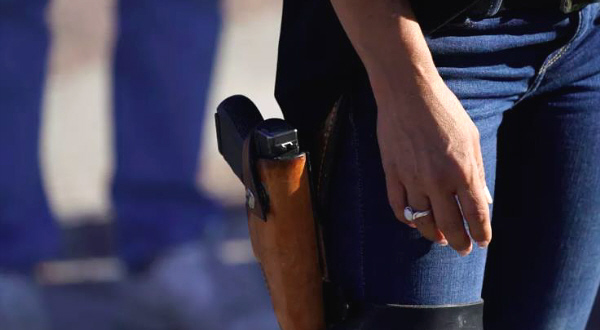

Disarmed But Not Dangerous
By Jacob Sullum. December 1, 2020
For lying on her federal income tax returns, Lisa Folajtar got three years of probation and a lifetime of constitutional disability. Because her crime carried a maximum penalty of three years in prison, she was permanently stripped of her Second Amendment right to keep and bear arms.
In a case that could give the Supreme Court an opportunity to elucidate the Second Amendment's restrictions on firearm laws for the first time in more than a decade, the U.S. Court of Appeals for the 3rd Circuit recently rejected Folajtar's challenge to the federal ban on gun possession by people with felony records. The dissent echoed the position staked out by the Court's newest justice, Amy Coney Barrett, as a 7th Circuit judge, saying that disqualification is not just unfair but unconstitutional.
Folajtar, who also paid a $10,000 fine and $250,000 in back taxes, argued that she should not have lost her constitutional right to armed self-defense because there was no reason to think she posed a threat to public safety. Two members of a three-judge 3rd Circuit panel disagreed, saying the Second Amendment is limited to "virtuous" citizens, a category from which Folajtar was forever expelled when she cheated on her taxes.
Although that view has been endorsed by several federal appeals courts, Judge Stephanos Bibas said in his 27-page dissent, it is at odds with the original public understanding of the Second Amendment. He argued that "the historical touchstone" for disarming felons is "danger, not virtue."
.... 
It's not just felonies either - there are plenty of instances where people have been denied their Second Amendment rights simply for a trivial misdemeanor. Felonies should always be judged according to the severity and nature of a crime and not just used as a "blanket" means to deprive people of their rights, and in particular assessment has to be made for risk concerning a crime's degree related to perceived danger to others, if any.
![]()

























